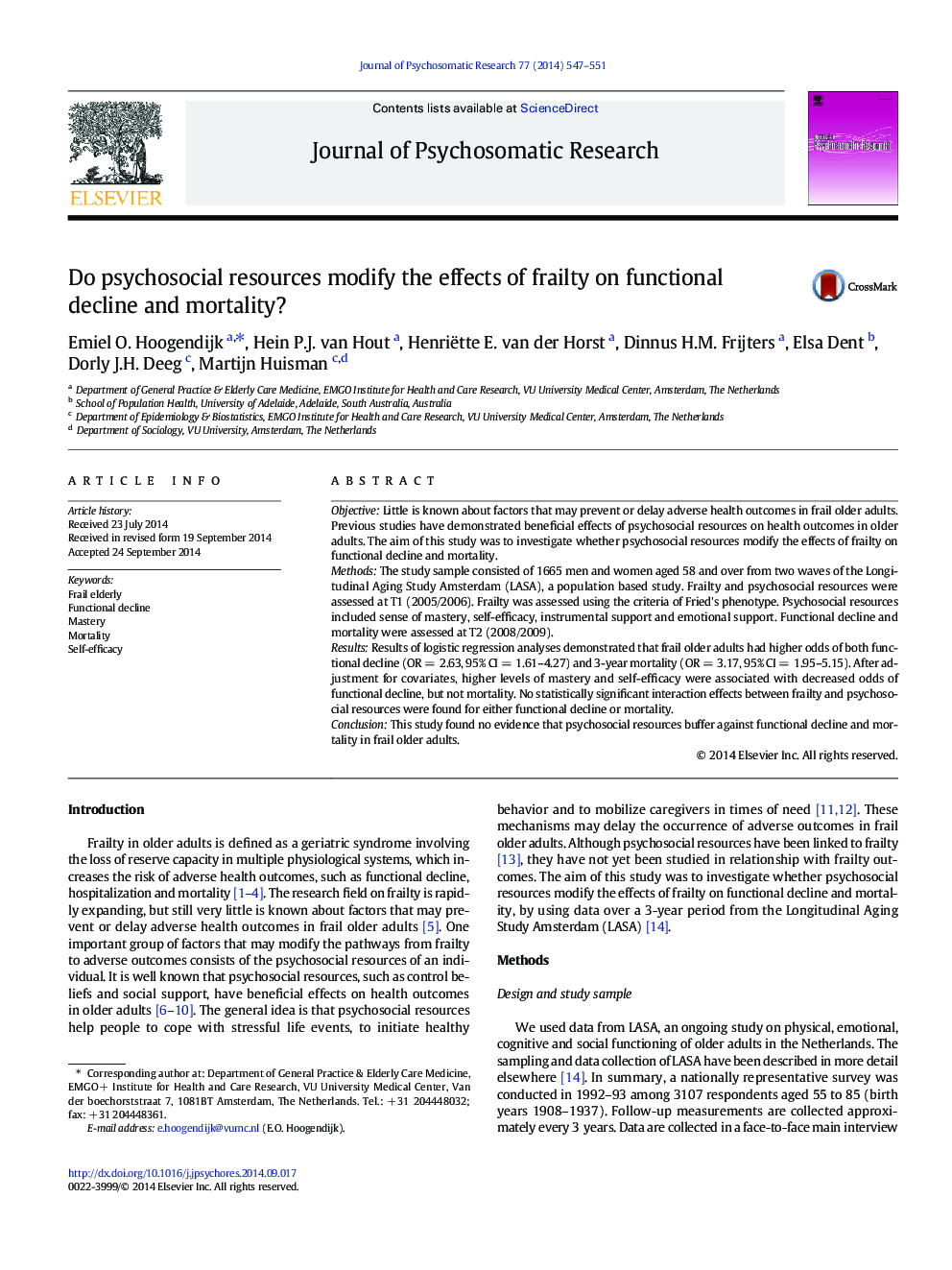| Article ID | Journal | Published Year | Pages | File Type |
|---|---|---|---|---|
| 949450 | Journal of Psychosomatic Research | 2014 | 5 Pages |
•We studied the modifying role of psychosocial resources on frailty outcomes.•Mastery and self-efficacy were associated with functional decline, but not mortality.•Frailty was associated with functional decline and 3-year mortality.•No interaction effects were found between frailty and psychosocial resources.•Psychosocial resources do not buffer against adverse outcomes in frail older adults.
ObjectiveLittle is known about factors that may prevent or delay adverse health outcomes in frail older adults. Previous studies have demonstrated beneficial effects of psychosocial resources on health outcomes in older adults. The aim of this study was to investigate whether psychosocial resources modify the effects of frailty on functional decline and mortality.MethodsThe study sample consisted of 1665 men and women aged 58 and over from two waves of the Longitudinal Aging Study Amsterdam (LASA), a population based study. Frailty and psychosocial resources were assessed at T1 (2005/2006). Frailty was assessed using the criteria of Fried's phenotype. Psychosocial resources included sense of mastery, self-efficacy, instrumental support and emotional support. Functional decline and mortality were assessed at T2 (2008/2009).ResultsResults of logistic regression analyses demonstrated that frail older adults had higher odds of both functional decline (OR = 2.63, 95% CI = 1.61–4.27) and 3-year mortality (OR = 3.17, 95% CI = 1.95–5.15). After adjustment for covariates, higher levels of mastery and self-efficacy were associated with decreased odds of functional decline, but not mortality. No statistically significant interaction effects between frailty and psychosocial resources were found for either functional decline or mortality.ConclusionThis study found no evidence that psychosocial resources buffer against functional decline and mortality in frail older adults.
